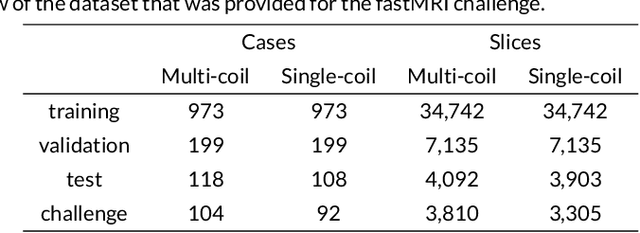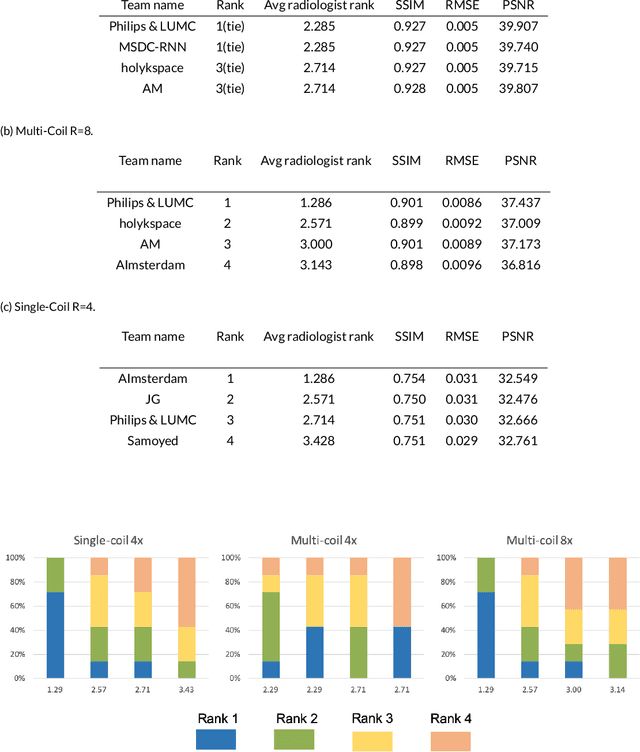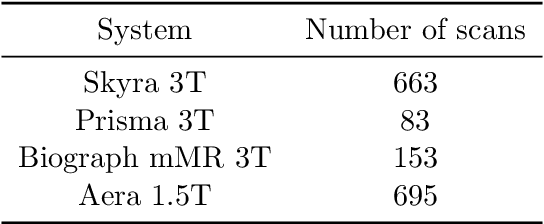Michael P. Recht
MRI Banding Removal via Adversarial Training
Feb 04, 2020



Abstract:MRI images reconstructed from sub-sampled Cartesian data using deep learning techniques often show a characteristic banding (sometimes described as streaking), which is particularly strong in low signal-to-noise regions of the reconstructed image. In this work, we propose the use of an adversarial loss that penalizes banding structures without requiring any human annotation. Our technique greatly reduces the appearance of banding, without requiring any additional computation or post-processing at reconstruction time. We report the results of a blind comparison against a strong baseline by a group of expert evaluators (board-certified radiologists), where our approach is ranked superior at banding removal with no statistically significant loss of detail.
Advancing machine learning for MR image reconstruction with an open competition: Overview of the 2019 fastMRI challenge
Jan 06, 2020


Abstract:Purpose: To advance research in the field of machine learning for MR image reconstruction with an open challenge. Methods: We provided participants with a dataset of raw k-space data from 1,594 consecutive clinical exams of the knee. The goal of the challenge was to reconstruct images from these data. In order to strike a balance between realistic data and a shallow learning curve for those not already familiar with MR image reconstruction, we ran multiple tracks for multi-coil and single-coil data. We performed a two-stage evaluation based on quantitative image metrics followed by evaluation by a panel of radiologists. The challenge ran from June to December of 2019. Results: We received a total of 33 challenge submissions. All participants chose to submit results from supervised machine learning approaches. Conclusion: The challenge led to new developments in machine learning for image reconstruction, provided insight into the current state of the art in the field, and highlighted remaining hurdles for clinical adoption.
fastMRI: An Open Dataset and Benchmarks for Accelerated MRI
Nov 21, 2018



Abstract:Accelerating Magnetic Resonance Imaging (MRI) by taking fewer measurements has the potential to reduce medical costs, minimize stress to patients and make MRI possible in applications where it is currently prohibitively slow or expensive. We introduce the fastMRI dataset, a large-scale collection of both raw MR measurements and clinical MR images, that can be used for training and evaluation of machine-learning approaches to MR image reconstruction. By introducing standardized evaluation criteria and a freely-accessible dataset, our goal is to help the community make rapid advances in the state of the art for MR image reconstruction. We also provide a self-contained introduction to MRI for machine learning researchers with no medical imaging background.
 Add to Chrome
Add to Chrome Add to Firefox
Add to Firefox Add to Edge
Add to Edge